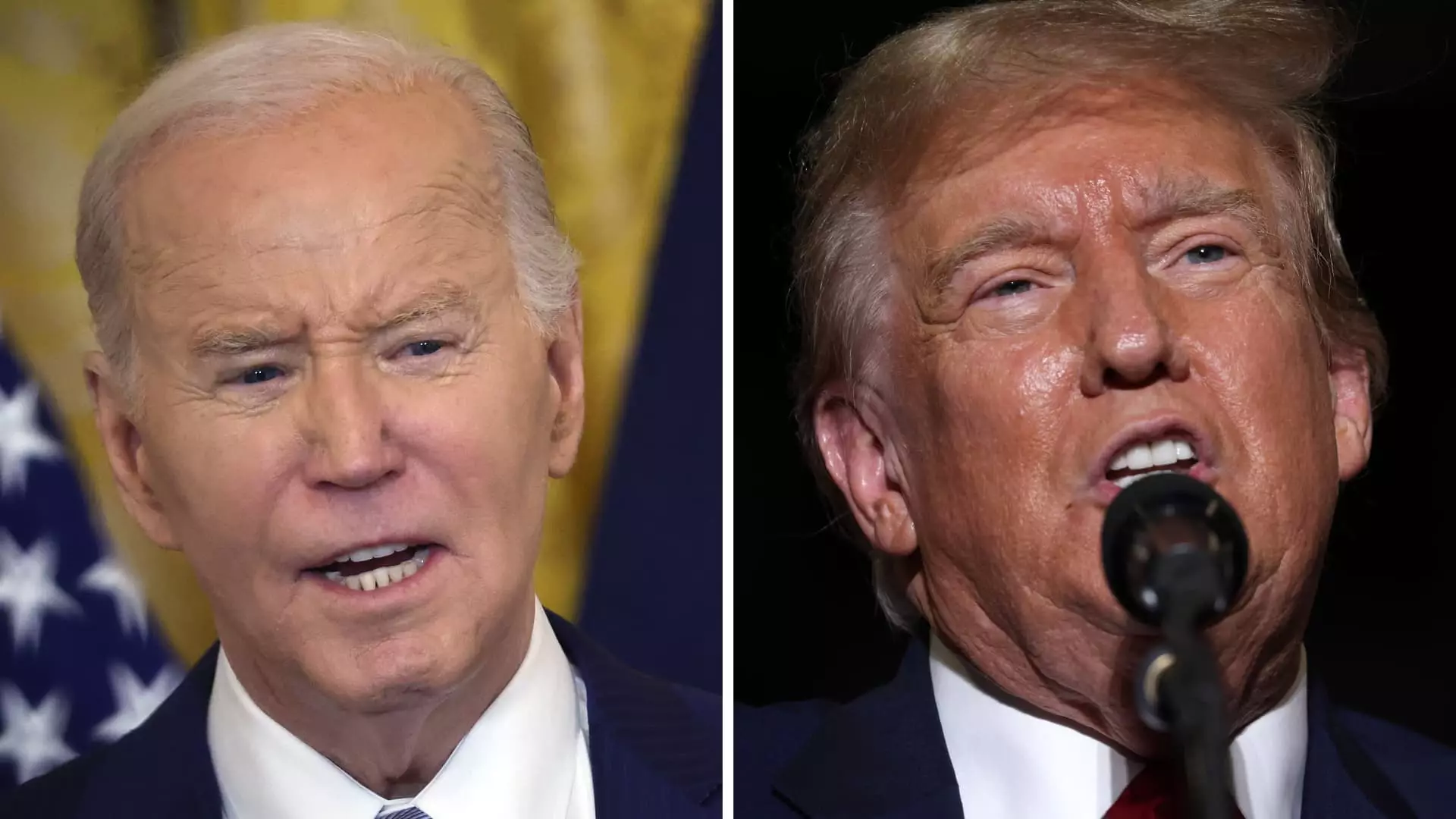As the 2025 tax cliff looms, there is a significant amount of uncertainty surrounding the expiration of trillions of dollars in tax breaks that were introduced as part of the Tax Cuts and Jobs Act of 2017 (TCJA). These expiring provisions could potentially lead to a tax increase for the majority of Americans if Congress does not take action to extend them. Both President Joe Biden and former President Donald Trump have acknowledged the importance of addressing this issue, with differing approaches on how to tackle it.
President Trump has expressed a desire to extend all of the TCJA provisions beyond 2025, while President Biden aims to focus on extending tax breaks for individuals earning below the $400,000 threshold. Despite their differences, both candidates are in agreement on providing tax relief for 95% of taxpayers. This bipartisan consensus highlights the significance of this issue and underscores the need for action to prevent a potential tax hike for millions of Americans.
Key Provisions at Risk
One of the crucial expiring provisions is the reduction in federal income tax brackets, which resulted in lower tax rates for individuals across various income levels. Without an extension, these rates are set to increase after 2025, reverting to pre-TCJA levels. Additionally, the higher standard deduction introduced by the TCJA significantly reduced the number of itemized filers, with 90% of taxpayers opting for the standard deduction in 2020. Reverting to the previous standard deduction levels could impact the ability of filers to claim various itemized tax breaks.
Another critical provision set to expire is the enhanced child tax credit, which was doubled under the TCJA. There have been ongoing debates in Congress regarding the expansion of this credit, with President Biden calling for further enhancements. However, the specifics of these enhancements, such as the amount, eligibility criteria, and refundability, remain contentious issues. Lawmakers must find a consensus on this issue to ensure continued financial support for families with children.
The Debate Over Tariffs
Apart from the internal tax policy issues, both candidates have also expressed their views on tariffs, particularly those imposed on Chinese imports. While there is some alignment in their stance on tariffs, there are key differences in their proposed approaches. President Trump favors a more aggressive tariff strategy, including a universal baseline tariff on all U.S. imports and higher tariffs on Chinese goods. In comparison, President Biden advocates for more targeted tariffs, emphasizing the need to consider the impact on consumers who ultimately bear the additional costs.
As the deadline for addressing the expiring tax provisions draws closer, there are significant concerns about the financial implications of extending these tax breaks. Fully extending the TCJA provisions could potentially add trillions of dollars to the federal deficit over the next decade, necessitating alternative sources of revenue. President Biden’s economic advisor has proposed higher taxes on the ultra-wealthy and corporations as a means to fund the extensions for middle-class Americans, highlighting the need for a fairer tax system.
The impending 2025 tax cliff poses a significant challenge for policymakers and taxpayers alike. The decisions made in the coming years will have far-reaching implications for the country’s fiscal health and the financial well-being of millions of Americans. As the debate over tax policy continues, it is essential for Congress to work towards a bipartisan solution that prioritizes the interests of the majority of taxpayers while ensuring fiscal responsibility and economic stability.

